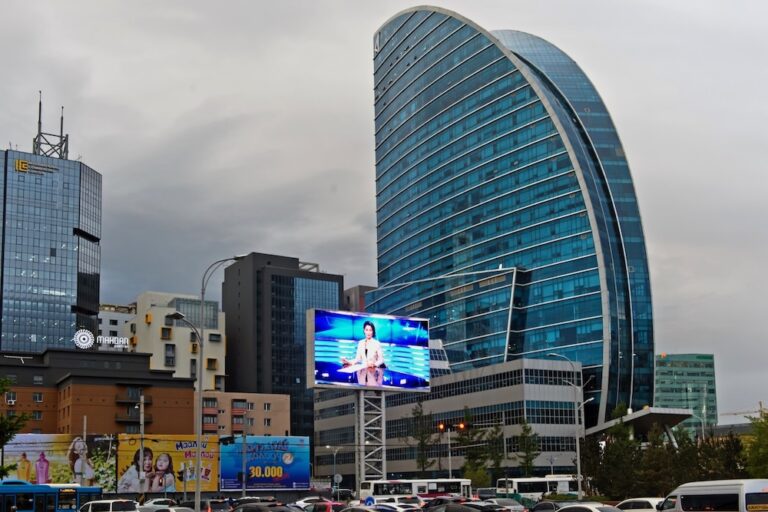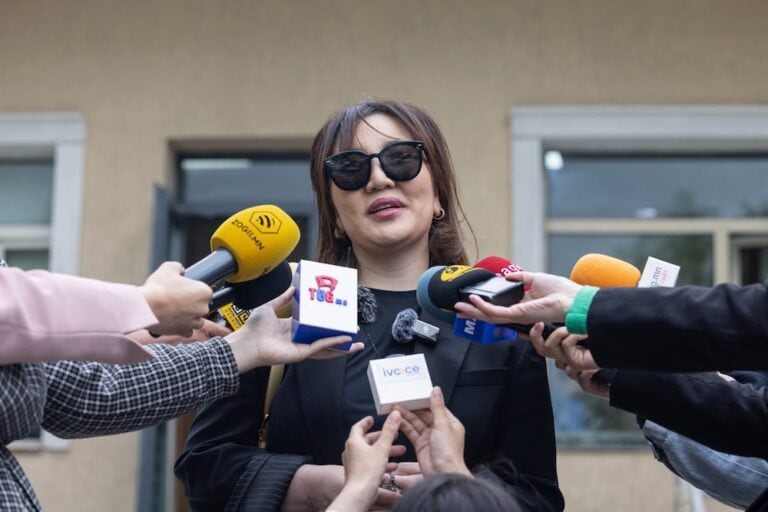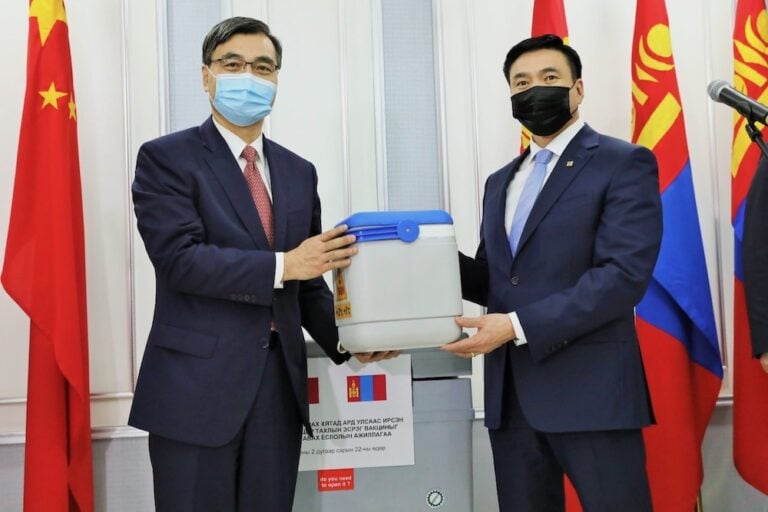(RSF/IFEX) – Reporters Without Borders calls on the Mongol authorities and political parties to protect journalists and guarantee media freedom after a series of incidents involving the press during violent demonstrations following the 29 June 2008 legislative elections. “We condemn the violence by demonstrators, who seriously injured three reporters,” the press freedom organisation said. “It […]
(RSF/IFEX) – Reporters Without Borders calls on the Mongol authorities and political parties to protect journalists and guarantee media freedom after a series of incidents involving the press during violent demonstrations following the 29 June 2008 legislative elections.
“We condemn the violence by demonstrators, who seriously injured three reporters,” the press freedom organisation said. “It is also very regrettable that the government chose to stop all of the capital’s TV stations, except the state TV, from broadcasting. Censorship is not the way to maintain law and order.”
Several journalists were injured on the night of 1 July. B. Byamba-Ochir, a photographer with the Mongol newspaper “Unuudur”, and H. Erdenebulgan of the national radio and TV broadcaster were badly hurt while covering protests by opposition supporters in the capital. A Japanese journalist working for Fuji TV was attacked. All three were hospitalised with head injuries. A European photographer told Agence France-Presse he was also hit on the head.
The headquarters of the newspapers “Hummuussiin Amidral”, “Humuus” and “Unuudriin Mongol” were all burned down in what were reported to be arson attacks.
All TV stations except the state TV were ordered to stop broadcasting under a state of emergency decreed by the president on 1 July. Privately-owned Eagle TV continued to post reports on its website.
Thousands of people staged violent street protests after the authorities announced that the ruling party won the elections and the opposition claimed there had been massive fraud. Five people were killed in Ulan Bator.


